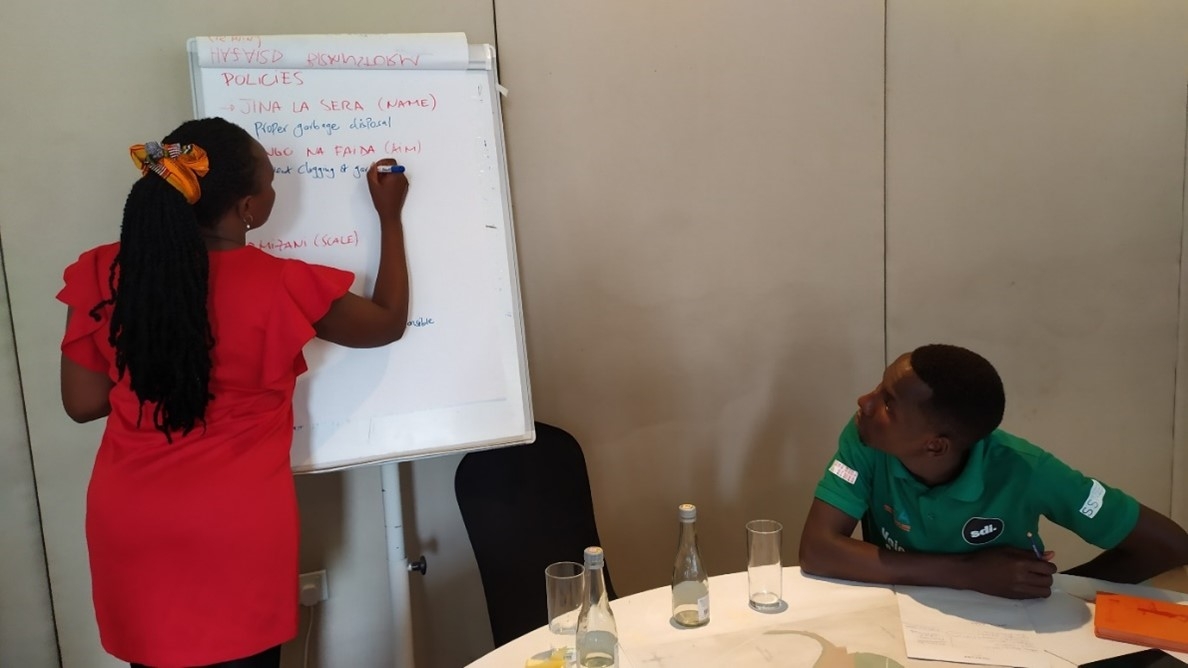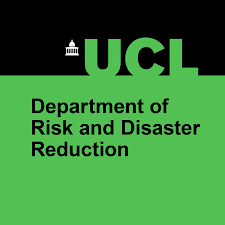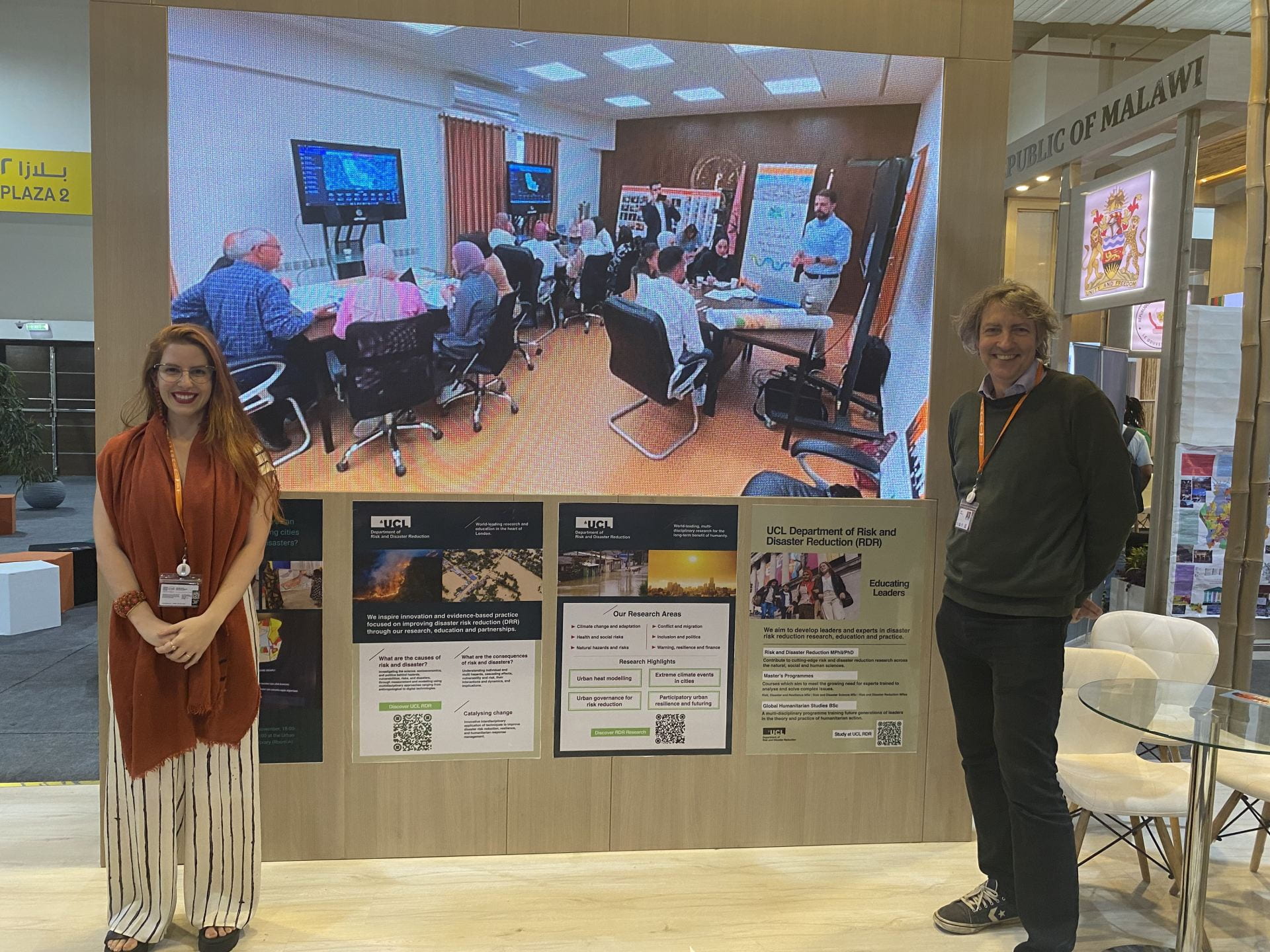
- Close
18/04/2023 | Nairobi
Visioning Scenario Development – Validation Workshop in Nairobi

As part of the Visioning Scenario Development activities, the Policy Validation Workshop took place on March 14th and 15th, 2023, in Nairobi. It served as a follow-up to the participatory Future Visioning exercise conducted in Kibera on December 13th and 14th, 2022 and aimed at assessing the correlation between community aspirations and the spatialized visions depicted on the 2D and 3D maps generated by our researchers.

During the Future Visioning workshops, various social groups from the Kibera community, including women, elders/men, youth, and businesspeople, had been invited to express their aspirations for a better Kibera in 2050. The policy validation workshop aimed to further examine these visions by comparing them to 2D land use maps, allowing the community groups to ensure the accurate representation of their aspirations. It also provided an opportunity for dialogue between the community and policymakers regarding the developed visions.

The validation workshop held in Kibera had a primary objective: to evaluate how well the community aspirations aligned with the spatialized visions represented on the 2D and 3D maps. The workshop aimed to achieve this objective through various means. Firstly, it aimed to create an interactive platform for policymakers and community members to engage in discussions regarding the future aspirations for a better Kibera in 2050. These discussions revolved around policy bundle discussions, allowing participants to explore and share their ideas on how to improve the community.
Additionally, the workshop sought to refine the aspirations that had been put forth by the community groups during the previous future visioning exercise. By examining these aspirations in more detail and discussing them in depth, the workshop aimed to enhance and fine-tune the vision for the future of Kibera. Furthermore, the Validation Workshop provided a solid foundation for advancing the Visioning Scenario Development stage work. This was achieved through hazard brainstorming sessions and by considering the complexity of the visions presented by the community. By evaluating potential hazards and challenges, the workshop aimed to develop strategies and policies that would address and mitigate these risks effectively.
Overall, and through interactive discussions with the disaggregated community groups focusing on policy bundles categorized according to the components of the urban wheel of assets, it was possible to better understand the community’s aspirations and evaluate potential hazards, fostering in this way the development of a comprehensive and inclusive vision for a better Kibera in 2050.




